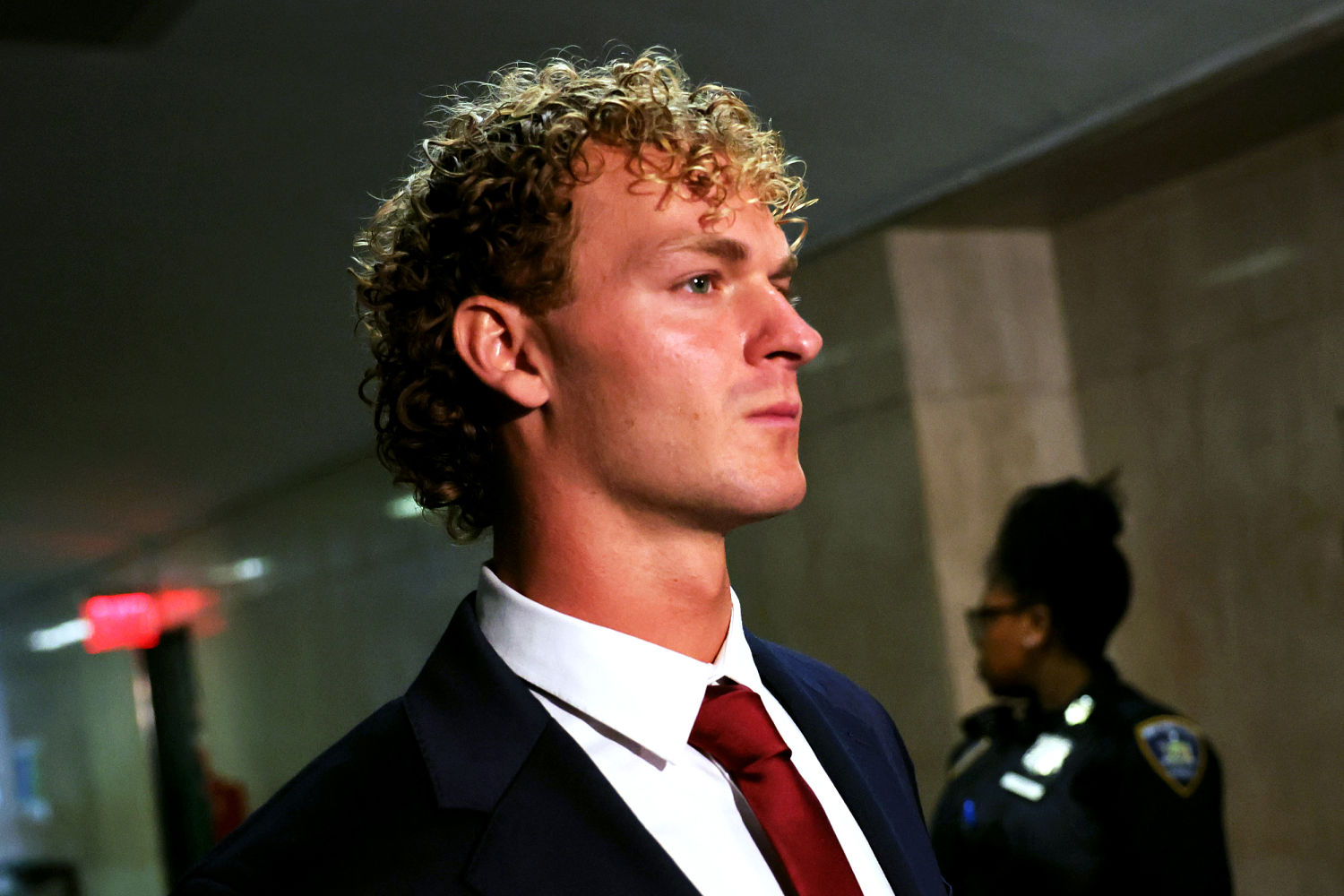
Attorneys for Daniel Penny, who is standing trial on charges of manslaughter and criminally negligent homicide in the May 2023 chokehold death of Jordan Neely, A homeless man on the New York City subway, rested his case Friday.
The jury is expected to hear closing arguments and start deliberations after Thanksgiving.
If Penny is convicted of manslaughter, the more serious charge, he could face up to 15 years in prison.
Neely, 30, a Michael Jackson impersonator with a history of mental illness, had been behaving erratically but not violentlyprosecutors said, on an F train he and Penny were both on when Penny threw him to the ground and put him in a chokehold for six minutes. They said Penny’s actions turned criminal when he kept choking Neely, even after he no longer posed a threat.
Bystander video of the two men that was widely shared online placed a spotlight on race relations, public safety within the city’s subway system and on how the city addresses mental health and homelessness. Penny is white. Neely was Black. Neely had a history of psychiatric and drug problems, and, on the day he was killed, he had synthetic cannabinoids in his system.
Penny’s attorneys say the former Marine acted to protect himself and fellow passengers. They said he did not intend to kill Neely and did not apply enough pressure to do so.
Defense witness Dr. Satish Chundru, a forensic pathologist and consultant, testified Thursday that he didn’t believe Neely had died of a chokehold. Chundru said Neely died from “the combined effects of sickle cell crisis, the schizophrenia, the struggle and restraint and the synthetic marijuana” that was in his system. He was one of the defense’s two experts witnesses. Penny’s attorneys also called six character witnesses, including his mother and sister.
Chundru’s testimony was intended to refute the findings of New York City medical examiner Dr. Cynthia Harris, who performed Neely’s autopsy and ruled that Penny’s chokehold had killed him. She was a prosecution witness and tested over three days.
“It’s my medical opinion that there are no alternative reasonable explanations for Mr. Neely’s death,” Harris told jurors a week ago.
She also tested that “the consensus was unanimous” within the medical examiner’s office as to Neely’s cause of death.
Harris, who was in court Thursday and Friday during Chundru’s testimony, was one of more than 30 witnesses called by prosecutors during the trial, including other passengers on the train the day Neely was killed.
Much of the final day of witness testimony Friday was dedicated to Manhattan Assistant District Attorney Dafna Yoran’s cross-examination of Chundru. Yoran called attention to instances where, she said, Chundru’s testimony contrasted with the findings of other medical professionals, including the American Society of Hematologists, and of his opinions in other cases.
On Friday afternoon, prosecutors also called New York City Police Officer Stephon Joefield as a rebuttal witness, to refute earlier testimony from Chundru that two people at the scene reported Neely was breathing after Penny let him go.
Jurors were shown a police body-camera video of Neely laying on the ground when Joefield responded to the subway. Joefield could be heard saying Neely was breathing. Joefield tested that Neely was unconscious and unresponsive when he arrived. He said he checked Neely’s pulse and that he had one, but that neither he nor his partner had checked whether Neely was breathing.
“I assumed that because he had a pulse that he was breathing,” Joefield tested.
Harris, the medical examiner, previously tested that a pulse can be maintained for about 10 minutes after the brain dies in cases of asphyxial death.

